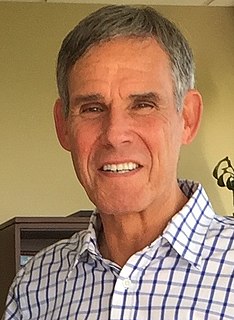A Quote by Napoleon Hill
People who do not succeed have one distinguishing trait in common. They know all the reasons for failure, and have what they believe to be air-tight alibis to explain away their own lack of achievement.
Related Quotes
The American system demands success, and in order to succeed we must first believe that we can. Yet our society, with its intolerance of failure and poverty, traps millions of people in positions where any kind of success seems impossible to contemplate, and in which failure itself is a kind of passive rebellion against their own misery and the social system which created it in the first place. To succeed it is necessary to accept the world as it is and rise above it.
Our enemy is not lack of preparation; it’s not the difficulty of the project or the state of the marketplace or the emptiness of our bank account. The enemy is our chattering brain, which, if we give it so much as a nanosecond, will start producing excuses, alibis, transparent self-justifications and a million reasons why we can’t/shouldn’t/won’t do what we know we need to do.
He had the uncanny capacity to know exactly what your weak point is, know what will make you feel small, to make you cringe," Joanna Hoffman said. "It's a common trait in people who are charismatic and know how to manipulate people. Knowing that he can crush you makes you feel weakened and eager for his approval, so then he can elevate you and put you on a pedestal and own you.
Another way to test hypotheses about adaptation is to consider trait variation across a group of species instead of focusing on the trait of a single species. Rather than seeking to explain why polar bears have fur of a certain thickness, one tries to explain why bears in colder climates have thicker fur than bears in warmer climates. The former problem is hard to solve, since it is hard to say exactly what fur thickness polar bears should have if natural selection guided the evolution of that trait.
They who lack talent expect things to happen without effort. They ascribe failure to a lack of inspiration or ability, or to misfortune, rather than to insufficient application. At the core of every true talent there is an awareness of the difficulties inherent in any achievement, and the confidence that by persistence and patience something worthwhile will be realized. Thus talent is a species of vigor.

































